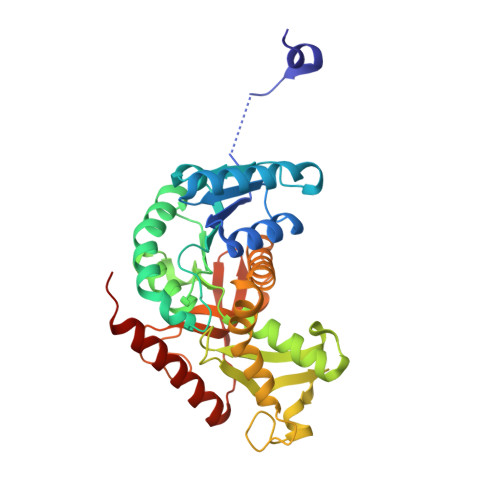The Design and Synthesis of Novel Lactate Dehydrogenase a Inhibitors by Fragment-Based Lead Generation
Ward, R., Brassington, C., Breeze, A.L., Caputo, A., Critchlow, S., Davies, G., Goodwin, L., Hassall, G., Greenwood, R., Holdgate, G., Mrosek, M., Norman, R.A., Pearson, S., Tart, J., Tucker, J.A., Vogtherr, M., Whittaker, D., Wingfield, J., Winter, J., Hudson, K.(2012) J Med Chem 55: 3285
- PubMed: 22417091
- DOI: https://doi.org/10.1021/jm201734r
- Primary Citation of Related Structures:
4AJ1, 4AJ2, 4AJ4, 4AJE, 4AJH, 4AJI, 4AJJ, 4AJK, 4AJL, 4AJN, 4AJO, 4AJP, 4AL4 - PubMed Abstract:
Lactate dehydrogenase A (LDHA) catalyzes the conversion of pyruvate to lactate, utilizing NADH as a cofactor. It has been identified as a potential therapeutic target in the area of cancer metabolism. In this manuscript we report our progress using fragment-based lead generation (FBLG), assisted by X-ray crystallography to develop small molecule LDHA inhibitors. Fragment hits were identified through NMR and SPR screening and optimized into lead compounds with nanomolar binding affinities via fragment linking. Also reported is their modification into cellular active compounds suitable for target validation work.
Organizational Affiliation:
Oncology and Discovery Sciences iMEDs, AstraZeneca, Mereside, Alderley Park, Macclesfield, Cheshire, SK10 4TG, UK. [email protected]


















